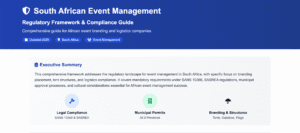Evaluating corporate events is crucial for measuring their success and identifying areas for improvement. As an event planner, it is essential to gather feedback from various stakeholders, including attendees, sponsors, speakers, and staff. This feedback provides valuable insights into the effectiveness of the event and helps in making data-driven decisions for future events. To collect feedback, you can choose from a range of feedback tools such as surveys, polls, quizzes, feedback forms, social media, and mobile apps. Once you have collected the feedback data, you can analyze it using methods like descriptive statistics, sentiment analysis, thematic analysis, and SWOT analysis. These analytical techniques help you identify the strengths, weaknesses, opportunities, and threats associated with the event.
The next step in the evaluation process is to act on the feedback results. Communicating the feedback to stakeholders and creating an action plan based on the findings are crucial for making improvements for future events. By taking action on the feedback, you can improve the brand image, ensure the completion of event goals, and build better relationships with sponsors.
Key Takeaways:
- Evaluating corporate events is essential for measuring success and identifying areas for improvement.
- Feedback from attendees, sponsors, speakers, and staff is crucial for event evaluation.
- Various feedback tools such as surveys, polls, quizzes, feedback forms, social media, and mobile apps can be used to collect feedback.
- Analyzing feedback data using descriptive statistics, sentiment analysis, thematic analysis, and SWOT analysis helps identify strengths, weaknesses, opportunities, and threats related to the event.
- Acting on feedback results by communicating them to stakeholders, creating an action plan, and making improvements based on the feedback is crucial.
Why Evaluate Corporate Events?
Evaluating corporate events allows event planners to measure their success, analyze the outcomes, and assess the overall effectiveness of the event. Feedback from attendees, sponsors, speakers, and staff is crucial in this process. By gathering feedback from various stakeholders, event planners can gain valuable insights into what worked well and what could be improved for future events.
Event planners have a range of tools at their disposal to collect feedback. Surveys, polls, quizzes, and feedback forms are commonly used to gather structured feedback. These tools can be distributed digitally or in-person during the event. Additionally, leveraging social media and mobile apps can provide real-time feedback and engagement from attendees.
Once the feedback is collected, event planners need to analyze the data to draw meaningful conclusions. Methods such as descriptive statistics, sentiment analysis, thematic analysis, and SWOT analysis can help identify the strengths, weaknesses, opportunities, and threats related to the event. This analysis provides valuable insights that can guide decision-making and improvements for future events.
Acting on the feedback results is the final step in the event evaluation process. Event planners should communicate the feedback to stakeholders, including attendees, sponsors, and speakers. This communication is essential for transparency and demonstrates the commitment to continuous improvement. By creating an action plan based on the feedback, event planners can make targeted improvements and ensure that future events meet the expectations of all stakeholders.

| Measure | Description |
|---|---|
| Attendee Feedback | Collecting feedback from attendees to gauge their satisfaction, identify areas for improvement, and understand their overall experience. |
| Social Media Mentions | Monitoring social media platforms for mentions, hashtags, and conversations related to the event, which can provide insights into attendee sentiment and event impact. |
| Profit and Loss Analysis | Evaluating the financial performance of the event by analyzing revenue, expenses, and profitability to determine the event’s financial success. |
| Registrations/Check-ins | Tracking the number of registrations and check-ins to assess event attendance and measure its popularity and reach. |
These key measures help event planners assess the success of their events from various perspectives, providing a comprehensive evaluation of their effectiveness. By analyzing these measures, event planners can make data-driven decisions and ensure that their future events meet the needs and expectations of their stakeholders.
Gathering Feedback from Stakeholders
Collecting feedback from attendees, sponsors, speakers, and staff is crucial for evaluating the performance and impact of a corporate event. This feedback provides valuable insights into areas of strength and weakness, allowing event planners to make informed decisions and improvements for future events. To gather feedback effectively, event planners can utilize various tools and methods to ensure comprehensive data collection.
Feedback Tools and Methods
There are several feedback tools and methods that can be used to evaluate the success of a corporate event:
- Surveys: Online surveys allow event planners to gather quantitative and qualitative data from attendees, sponsors, speakers, and staff. Utilizing platforms such as Google Forms, Survey Monkey, and Typeform makes it easy to design and distribute surveys, reaching a larger audience.
- Polls and quizzes: Interactive polls and quizzes provide instant feedback and engagement during the event. Event planners can use tools like Slido or Mentimeter to create interactive experiences and gather real-time data.
- Feedback forms: Physical or digital feedback forms can be distributed at the event, allowing participants to provide immediate feedback on various aspects of the event.
- Social media and mobile apps: Monitoring social media mentions and utilizing event-specific mobile apps provide valuable feedback in real-time. Analyzing social media posts, comments, and reviews helps event planners understand attendees’ experiences and perceptions.
By using a combination of these tools and methods, event planners can gather comprehensive feedback from various stakeholders, obtaining a holistic view of the event’s performance and impact.
| Evaluating Event Impact | Corporate Event Performance Analysis | Event Evaluation Metrics |
|---|---|---|
| By collecting feedback from stakeholders, event planners can assess the impact of the event on attendees, sponsors, speakers, and staff. They can measure the event’s effectiveness in achieving its goals and identify areas for improvement. | Event performance analysis involves analyzing various aspects of the event, such as attendee satisfaction, engagement levels, and overall experience. It helps event planners understand what worked well and what can be enhanced. | Event evaluation metrics provide measurable indicators of success or areas that require improvement. These metrics can include attendee feedback ratings, social media mentions, profit and loss analysis, and registrations/check-ins. |

Analyzing the feedback data collected from stakeholders is essential to gain meaningful insights and identify areas of improvement. Methods such as descriptive statistics, sentiment analysis, thematic analysis, and SWOT analysis can be employed to interpret the data effectively. Descriptive statistics help quantify the feedback, while sentiment analysis enables event planners to understand participants’ overall sentiments. Thematic analysis involves identifying recurring themes or patterns in the feedback, providing deeper insights into specific aspects of the event. SWOT analysis helps assess the event’s strengths, weaknesses, opportunities, and threats, enabling event planners to make informed decisions for future events.
Once the feedback data has been analyzed, event planners must take action based on the results. This involves communicating the feedback to stakeholders and creating an action plan to address areas of improvement. By making necessary changes and enhancements to future events, event planners can continuously improve the event experience and build stronger relationships with attendees, sponsors, speakers, and staff. Event evaluation ultimately contributes to the overall success and growth of the corporate event, ensuring maximum return on investment.
Analyzing Feedback Data
Analyzing feedback data involves utilizing techniques such as descriptive statistics, sentiment analysis, thematic analysis, and SWOT analysis to gain insights into the success and areas for improvement of a corporate event. Descriptive statistics provide a clear overview of the feedback data, allowing event planners to identify patterns and trends. By analyzing numeric data such as ratings and rankings, event planners can assess the overall satisfaction levels of attendees and stakeholders.
Sentiment analysis, on the other hand, focuses on the emotional tone expressed in the feedback. This technique helps event planners understand the sentiment behind the comments and identify any areas that may have elicited strong positive or negative reactions. By categorizing feedback into positive, negative, or neutral sentiments, event planners can gain valuable insights into attendee experiences and make data-driven decisions for future events.
Thematic analysis allows event planners to identify common themes and topics within the feedback data. By categorizing feedback into key themes or topics, such as speaker quality, venue, or event organization, event planners can pinpoint areas of strength or improvement. This helps in identifying patterns and areas of focus for future events.
Lastly, SWOT analysis (Strengths, Weaknesses, Opportunities, and Threats) helps event planners evaluate the overall performance of the corporate event. By assessing the feedback data against these four dimensions, event planners can identify the strengths and weaknesses of the event, as well as potential opportunities and threats that exist in the market or industry. This analysis provides a comprehensive understanding of the event’s impact and can guide event planners in making strategic decisions to improve future events.
| Technique | Description |
|---|---|
| Descriptive Statistics | Provides an overview of the feedback data, identifying patterns and trends. |
| Sentiment Analysis | Focuses on the emotional tone expressed in the feedback to understand attendee sentiment. |
| Thematic Analysis | Identifies common themes and topics within the feedback data to pinpoint areas of focus. |
| SWOT Analysis | Evaluates the overall performance of the event by assessing strengths, weaknesses, opportunities, and threats. |
By utilizing these techniques, event planners can gain valuable insights into the success and areas for improvement of a corporate event. These insights can inform decision-making, guide event planning strategies, and ensure future events are even more successful. Additionally, gathering feedback from attendees and stakeholders can highlight specific preferences and expectations, helping to tailor future events more effectively. This ongoing evaluation process is crucial in developing a deeper understanding of audience engagement, making planning successful corporate events not only more efficient but also more impactful. Ultimately, a commitment to continuous improvement fosters a culture of excellence that can elevate a company’s brand and reputation.

Acting on feedback results is crucial for improving future events and maximizing the return on investment for corporate event planners. Once you have collected feedback from attendees, sponsors, speakers, and staff, it is essential to communicate the results to stakeholders and create an action plan based on the feedback received. By taking these steps, you can make meaningful improvements and ensure the success of your future events.
One effective way to communicate feedback to stakeholders is through concise and informative reports. These reports should highlight the key findings from the feedback data and provide actionable recommendations for improvement. Presenting the information in a visually appealing and easily digestible format, such as tables and graphs, can help stakeholders better understand the feedback and the proposed actions to be taken.
| Feedback Data | Action Plan |
|---|---|
| Gathering Feedback from Attendees | Implement suggestions for enhancing the attendee experience, such as improving event logistics or adding more interactive sessions. |
| Feedback from Sponsors | Address sponsor concerns and suggestions to strengthen relationships, such as offering additional branding opportunities or optimizing sponsorship packages. |
| Input from Speakers | Incorporate speaker feedback into the planning process to ensure their needs are met and their presentations are well-received. |
| Insights from Staff | Address any operational issues raised by staff members to streamline event execution and improve overall efficiency. |
In addition to communicating feedback, creating an action plan is crucial for making improvements. This plan should outline specific steps to be taken to address the feedback received. Whether it involves making changes to the event program, revisiting the venue selection process, or enhancing marketing strategies, each action should be clearly defined and assigned to the appropriate team member or department.

Remember, taking action based on feedback not only helps you improve the quality of your events but also demonstrates your commitment to continuously enhancing the attendee experience. By actively listening to feedback and making necessary improvements, you can build a loyal and satisfied audience, attract new sponsors, and ultimately achieve greater success with your corporate events.
Benefits of Event Evaluation
Event evaluation plays a vital role in improving brand image, checking the completion of event goals, and fostering stronger relationships with sponsors. By conducting a thorough evaluation of corporate events, event planners can gain valuable insights into the success of their initiatives and make informed decisions for future events. Here are some key benefits of event evaluation:
- Improving Brand Image: Evaluating corporate events allows event planners to assess whether the event successfully reflects and enhances the brand image. By understanding how the event aligns with the brand’s values and messaging, adjustments can be made to ensure consistency and enhance the overall brand image.
- Checking the Completion of Event Goals: Event evaluation provides an opportunity to assess whether event goals and objectives were effectively achieved. Through analyzing feedback and performance metrics, event planners can determine whether the event met its intended outcomes and identify areas for improvement.
- Fostering Stronger Relationships with Sponsors: Sponsors play a crucial role in corporate events, and their support is often vital for their success. By evaluating events, event planners can demonstrate the value and impact of sponsorship opportunities, which can strengthen relationships with sponsors and encourage continued support for future events.
In summary, event evaluation is essential for event planners to measure the success of their corporate events. It allows them to gather feedback from stakeholders, analyze data, and take action based on the results. By evaluating events, event planners can improve brand image, ensure the completion of event goals, and build stronger relationships with sponsors. These benefits ultimately contribute to the overall success and effectiveness of corporate events.

| Key Measures for Event Evaluation | Description |
|---|---|
| Attendee Feedback | Solicit feedback from event attendees through surveys or feedback forms to gain insights into their experiences and satisfaction levels. |
| Social Media Mentions | Monitor social media platforms for mentions, comments, and discussions related to the event, which can provide valuable feedback and insights. |
| Profit and Loss Analysis | Conduct a thorough analysis of the event’s financial performance, including revenue generated, expenses incurred, and overall profitability. |
| Registrations/Check-Ins | Track the number of registrations and check-ins for the event to assess its popularity and attendance rates. |
Key Measures for Event Evaluation
Evaluating the success of corporate events relies on analyzing factors such as attendee feedback, social media mentions, profit and loss analysis, and registrations/check-ins. These key measures provide valuable insights into the effectiveness of the event and help event planners make data-driven decisions for future improvements.
One of the most important measures is attendee feedback. Gathering feedback from attendees allows event planners to understand their experience, satisfaction levels, and areas for improvement. Surveys, feedback forms, and interactive quizzes can be used to collect this feedback, providing quantitative and qualitative data for analysis.
Social media mentions also play a crucial role in event evaluation. Monitoring platforms like Twitter, Facebook, and Instagram for mentions and hashtags related to the event can provide valuable insights into attendee sentiment and the overall perception of the event. Positive mentions and engagement indicate a successful event, while negative feedback highlights areas that need attention.
Profit and loss analysis is another key measure that helps evaluate the financial success of the event. By analyzing revenue and expenses, event planners can determine if the event generated a positive return on investment. This analysis helps identify areas where cost-cutting can be implemented or revenue streams can be enhanced for future events.
| Measure | Description |
|---|---|
| Attendee Feedback | Gathering feedback from attendees to assess their experience and satisfaction levels. |
| Social Media Mentions | Monitoring social media platforms for mentions and hashtags related to the event to gauge attendee sentiment. |
| Profit and Loss Analysis | Examining revenue and expenses to determine the financial success of the event. |
| Registrations/Check-ins | Tracking the number of registrations and check-ins to measure attendee engagement and event popularity. |
Registrations and check-ins provide valuable data on attendee engagement and event popularity. By tracking the number of registrations and check-ins, event planners can determine the overall success of marketing efforts and the level of interest in the event. These metrics also help in evaluating the event’s reach and effectiveness in attracting the target audience.
By carefully analyzing these key measures, event planners can gain valuable insights into the success of their corporate events. This data-driven evaluation process allows for informed decision-making, ensuring continuous improvement and the delivery of exceptional experiences for future events.
Survey Tools for Feedback Collection
To collect feedback from stakeholders, event planners can utilize survey tools like Google Forms, Survey Monkey, and Typeform, which offer user-friendly interfaces and effective data collection capabilities. These tools provide a convenient way to gather feedback from attendees, sponsors, speakers, and staff, allowing event planners to gain valuable insights into the success of their corporate events.
Google Forms, a free tool offered by Google, enables event planners to create customized surveys with various question types, including multiple-choice, open-ended, and rating scales. The data collected can be easily analyzed and visualized using Google Sheets, providing event planners with a comprehensive view of the feedback received.
Survey Monkey, one of the most popular survey tools, offers a range of features and templates to create professional surveys. It allows event planners to design visually appealing surveys, customize the branding, and collect responses seamlessly. The platform also provides powerful analytics and reporting capabilities to generate insights from the feedback data.
Typeform is another intuitive survey tool that enables event planners to create interactive surveys with a conversational approach. Its user-friendly interface and visually appealing design make it engaging for respondents, resulting in higher response rates. Additionally, Typeform offers advanced features such as logic branching and hidden fields, allowing event planners to gather more specific feedback from stakeholders.
| Survey Tool | Key Features |
|---|---|
| Google Forms | Free, customizable surveys; data analysis with Google Sheets |
| Survey Monkey | Professional templates, customizable branding, powerful analytics |
| Typeform | Interactive surveys, conversational approach, advanced features |
These survey tools offer event planners a convenient and efficient means to collect feedback and evaluate the success of their corporate events. By leveraging these tools, event planners can gather valuable insights, make data-driven decisions, and continually improve their future events.

Timing plays a vital role in conducting effective event evaluation, as it allows event planners to gather timely feedback and make improvements for future events. Ensuring that the evaluation process occurs promptly after the event ensures that attendees, sponsors, speakers, and staff have a fresh recollection of the event’s details and their experiences. This helps in obtaining accurate and insightful feedback that can be used to identify areas of improvement and implement necessary changes.
One important aspect of timing is to strike a balance between conducting the evaluation soon enough to capture immediate reactions and waiting long enough to allow for a more comprehensive assessment of the event’s impact. Conducting the evaluation too soon may result in hasty judgments that do not fully reflect the overall success of the event, while waiting too long may cause stakeholders to forget important details or lose interest in providing feedback.
By conducting event evaluation promptly, event planners can gather feedback while the event is still fresh in the minds of attendees and stakeholders. This increases the likelihood of receiving accurate and detailed feedback that can be used to make informed decisions for future events. Additionally, conducting the evaluation in a timely manner allows event planners to identify and address any issues or concerns raised by participants, ensuring that improvements are made before the next event.
| Benefits of Timely Event Evaluation |
|---|
| 1. Improved Accuracy and Detail in Feedback |
| 2. Prompt Identification and Resolution of Issues |
| 3. Timely Decision Making for Future Events |
Overall, timing is a crucial factor when conducting event evaluation. It enables event planners to gather feedback at the right moment, ensuring that valuable insights are captured, and improvements can be made promptly. By considering the timing of the evaluation process, event planners can optimize the effectiveness of their efforts and enhance the overall success of corporate events.
Conclusion
Evaluating corporate events is a crucial step in measuring their success and improving future events, and utilizing effective event evaluation methods is key to maximizing return on investment. Feedback from attendees, sponsors, speakers, and staff plays a pivotal role in this process.
Event planners have a range of feedback tools at their disposal, including surveys, polls, quizzes, feedback forms, and even social media and mobile apps. By gathering feedback using these tools, event planners can gain valuable insights into the strengths, weaknesses, opportunities, and threats associated with their events.
Once the feedback is collected, it is important to analyze the data using methods such as descriptive statistics, sentiment analysis, thematic analysis, and SWOT analysis. This analytical process helps event planners identify areas for improvement and make informed decisions for future events.
Acting on the feedback results is the final step in the event evaluation process. This involves effectively communicating the feedback to stakeholders, creating an action plan based on the insights gained, and making necessary improvements to enhance the overall experience for attendees, meet event goals, and forge stronger relationships with sponsors.
In conclusion, event evaluation is a valuable practice that allows corporate event planners to measure the success of their events, identify areas for improvement, and ultimately achieve a higher return on investment. By leveraging feedback tools, analyzing data, and taking action based on insights gained, event planners can ensure that their future events are even more successful and impactful.
FAQ
1. Why is evaluating corporate events important?
Evaluating corporate events is crucial for event planners to measure success and improve future events. It helps in analyzing outcomes, assessing effectiveness, and identifying areas for improvement. By gathering feedback from attendees and stakeholders, planners can gain insights into what worked well and what didn’t. These evaluations not only inform decision-making for future events but also play a vital role in managing successful corporate events that align with the organization’s goals. Ultimately, a thorough evaluation process fosters continuous improvement and ensures that each event contributes positively to the company’s reputation and objectives.
2. How do you gather feedback from stakeholders?
Feedback from attendees, sponsors, speakers, and staff can be collected through various tools such as surveys, polls, quizzes, feedback forms, social media, and mobile apps.
3. What methods are used to analyze feedback data?
Feedback data collected from the stakeholders can be analyzed using methods like descriptive statistics, sentiment analysis, thematic analysis, and SWOT analysis to identify strengths, weaknesses, opportunities, and threats related to the event.
4. How do you act on feedback results?
Acting on feedback results involves communicating them to stakeholders, creating an action plan, and making improvements based on the feedback received from the corporate event evaluation.
5. What are the benefits of event evaluation?
Evaluating corporate events helps in improving brand image, checking the completion of event goals, and building better relationships with sponsors. Additionally, it provides valuable insights into audience engagement, allowing companies to refine their approach for future initiatives. By analyzing the data gathered from corporate events, businesses can tailor their marketing strategies for corporate events to better resonate with their target demographics. Ultimately, this continuous improvement leads to increased ROI and a stronger market presence.
6. What are the key measures for event evaluation?
Key measures for event evaluation include analyzing attendee feedback, monitoring social media mentions, conducting profit and loss analysis, and tracking registrations and check-ins.
7. Which survey tools can be used for feedback collection?
Popular survey tools for feedback collection include Google Forms, Survey Monkey, and Typeform.
8. When is the ideal timing for event evaluation?
The ideal timing for event evaluation is to gather feedback and make improvements based on the feedback for future events in a timely manner.
How Can Organizing Hybrid Corporate Events Impact the Evaluation Process?
Hybrid corporate events have the potential to revolutionize the evaluation process. By organizing successful hybrid corporate events, companies can expand their reach and engage a broader audience. This allows for increased participation, resulting in more robust data collection and feedback. Moreover, the combination of virtual and in-person elements enhances accessibility and inclusivity, making it easier to evaluate attendee satisfaction and overall event success.
Registrations and check-ins provide valuable data on attendee engagement and event popularity. By tracking the number of registrations and check-ins, event planners can determine the overall success of marketing efforts and the level of interest in the event. These metrics also help in evaluating the event’s reach and effectiveness in attracting the target audience.
By carefully analyzing these key measures, event planners can gain valuable insights into the success of their corporate events. This data-driven evaluation process allows for informed decision-making, ensuring continuous improvement and the delivery of exceptional experiences for future events.
Survey Tools for Feedback Collection
To collect feedback from stakeholders, event planners can utilize survey tools like Google Forms, Survey Monkey, and Typeform, which offer user-friendly interfaces and effective data collection capabilities. These tools provide a convenient way to gather feedback from attendees, sponsors, speakers, and staff, allowing event planners to gain valuable insights into the success of their corporate events.
Google Forms, a free tool offered by Google, enables event planners to create customized surveys with various question types, including multiple-choice, open-ended, and rating scales. The data collected can be easily analyzed and visualized using Google Sheets, providing event planners with a comprehensive view of the feedback received.
Survey Monkey, one of the most popular survey tools, offers a range of features and templates to create professional surveys. It allows event planners to design visually appealing surveys, customize the branding, and collect responses seamlessly. The platform also provides powerful analytics and reporting capabilities to generate insights from the feedback data.
Typeform is another intuitive survey tool that enables event planners to create interactive surveys with a conversational approach. Its user-friendly interface and visually appealing design make it engaging for respondents, resulting in higher response rates. Additionally, Typeform offers advanced features such as logic branching and hidden fields, allowing event planners to gather more specific feedback from stakeholders.
| Survey Tool | Key Features |
|---|---|
| Google Forms | Free, customizable surveys; data analysis with Google Sheets |
| Survey Monkey | Professional templates, customizable branding, powerful analytics |
| Typeform | Interactive surveys, conversational approach, advanced features |
These survey tools offer event planners a convenient and efficient means to collect feedback and evaluate the success of their corporate events. By leveraging these tools, event planners can gather valuable insights, make data-driven decisions, and continually improve their future events.

Timing plays a vital role in conducting effective event evaluation, as it allows event planners to gather timely feedback and make improvements for future events. Ensuring that the evaluation process occurs promptly after the event ensures that attendees, sponsors, speakers, and staff have a fresh recollection of the event’s details and their experiences. This helps in obtaining accurate and insightful feedback that can be used to identify areas of improvement and implement necessary changes.
One important aspect of timing is to strike a balance between conducting the evaluation soon enough to capture immediate reactions and waiting long enough to allow for a more comprehensive assessment of the event’s impact. Conducting the evaluation too soon may result in hasty judgments that do not fully reflect the overall success of the event, while waiting too long may cause stakeholders to forget important details or lose interest in providing feedback.
By conducting event evaluation promptly, event planners can gather feedback while the event is still fresh in the minds of attendees and stakeholders. This increases the likelihood of receiving accurate and detailed feedback that can be used to make informed decisions for future events. Additionally, conducting the evaluation in a timely manner allows event planners to identify and address any issues or concerns raised by participants, ensuring that improvements are made before the next event.
| Benefits of Timely Event Evaluation |
|---|
| 1. Improved Accuracy and Detail in Feedback |
| 2. Prompt Identification and Resolution of Issues |
| 3. Timely Decision Making for Future Events |
Overall, timing is a crucial factor when conducting event evaluation. It enables event planners to gather feedback at the right moment, ensuring that valuable insights are captured, and improvements can be made promptly. By considering the timing of the evaluation process, event planners can optimize the effectiveness of their efforts and enhance the overall success of corporate events.
Conclusion
Evaluating corporate events is a crucial step in measuring their success and improving future events, and utilizing effective event evaluation methods is key to maximizing return on investment. Feedback from attendees, sponsors, speakers, and staff plays a pivotal role in this process.
Event planners have a range of feedback tools at their disposal, including surveys, polls, quizzes, feedback forms, and even social media and mobile apps. By gathering feedback using these tools, event planners can gain valuable insights into the strengths, weaknesses, opportunities, and threats associated with their events.
Once the feedback is collected, it is important to analyze the data using methods such as descriptive statistics, sentiment analysis, thematic analysis, and SWOT analysis. This analytical process helps event planners identify areas for improvement and make informed decisions for future events.
Acting on the feedback results is the final step in the event evaluation process. This involves effectively communicating the feedback to stakeholders, creating an action plan based on the insights gained, and making necessary improvements to enhance the overall experience for attendees, meet event goals, and forge stronger relationships with sponsors.
In conclusion, event evaluation is a valuable practice that allows corporate event planners to measure the success of their events, identify areas for improvement, and ultimately achieve a higher return on investment. By leveraging feedback tools, analyzing data, and taking action based on insights gained, event planners can ensure that their future events are even more successful and impactful.
FAQ
1. Why is evaluating corporate events important?
Evaluating corporate events is crucial for event planners to measure success and improve future events. It helps in analyzing outcomes, assessing effectiveness, and identifying areas for improvement.
2. How do you gather feedback from stakeholders?
Feedback from attendees, sponsors, speakers, and staff can be collected through various tools such as surveys, polls, quizzes, feedback forms, social media, and mobile apps.
3. What methods are used to analyze feedback data?
Feedback data collected from the stakeholders can be analyzed using methods like descriptive statistics, sentiment analysis, thematic analysis, and SWOT analysis to identify strengths, weaknesses, opportunities, and threats related to the event.
4. How do you act on feedback results?
Acting on feedback results involves communicating them to stakeholders, creating an action plan, and making improvements based on the feedback received from the corporate event evaluation.
5. What are the benefits of event evaluation?
Evaluating corporate events helps in improving brand image, checking the completion of event goals, and building better relationships with sponsors.
6. What are the key measures for event evaluation?
Key measures for event evaluation include analyzing attendee feedback, monitoring social media mentions, conducting profit and loss analysis, and tracking registrations and check-ins.
7. Which survey tools can be used for feedback collection?
Popular survey tools for feedback collection include Google Forms, Survey Monkey, and Typeform.
8. When is the ideal timing for event evaluation?
The ideal timing for event evaluation is to gather feedback and make improvements based on the feedback for future events in a timely manner.




